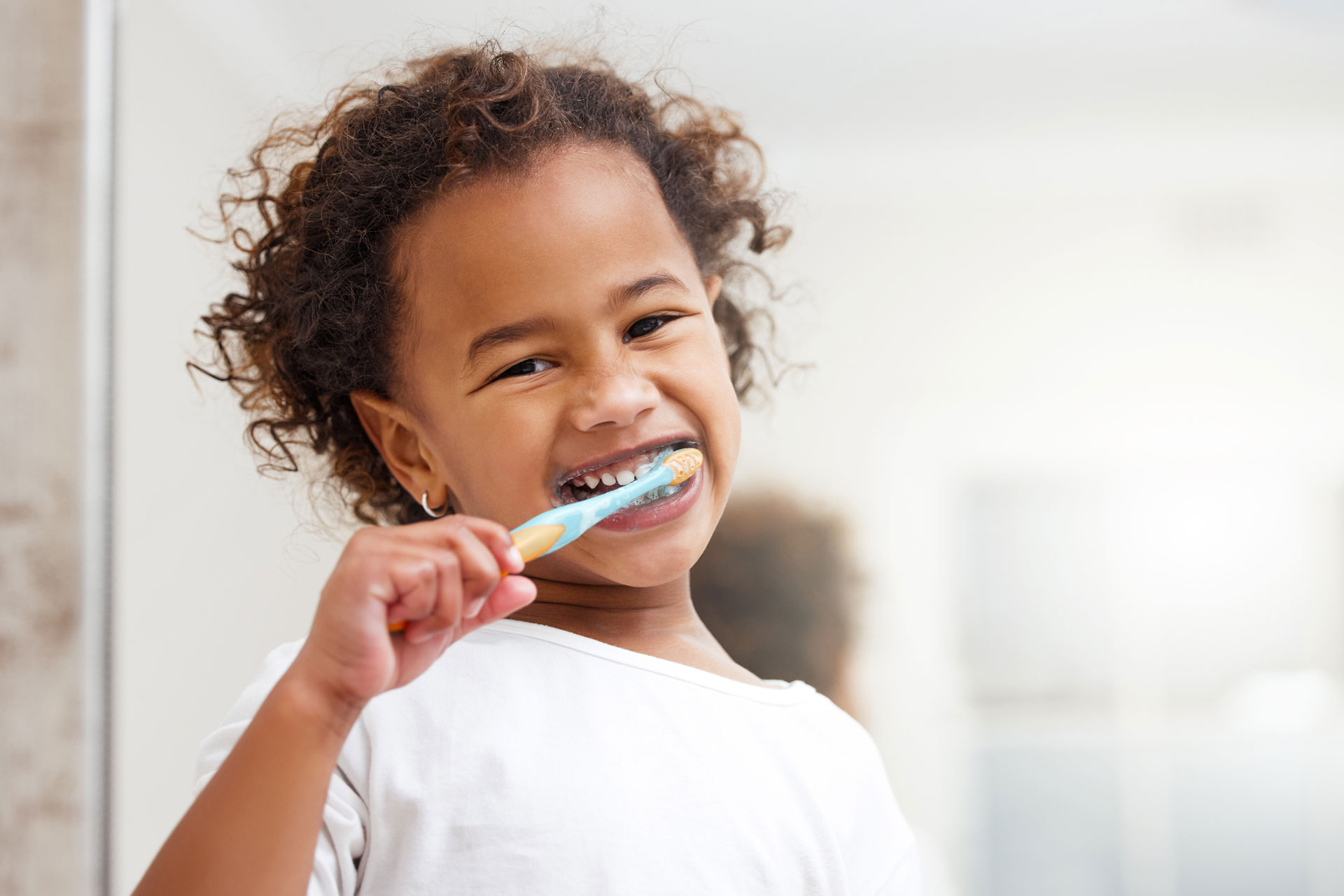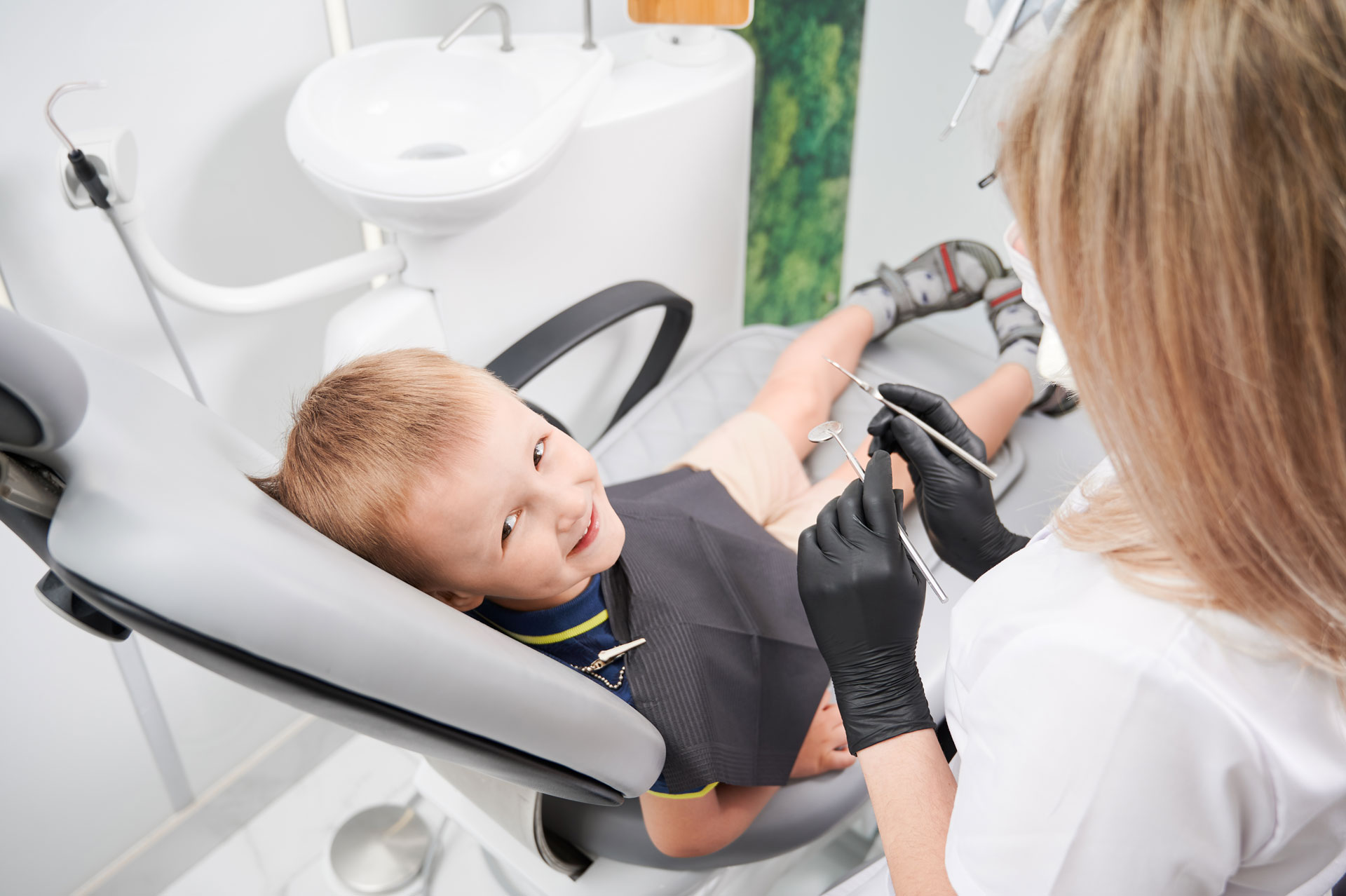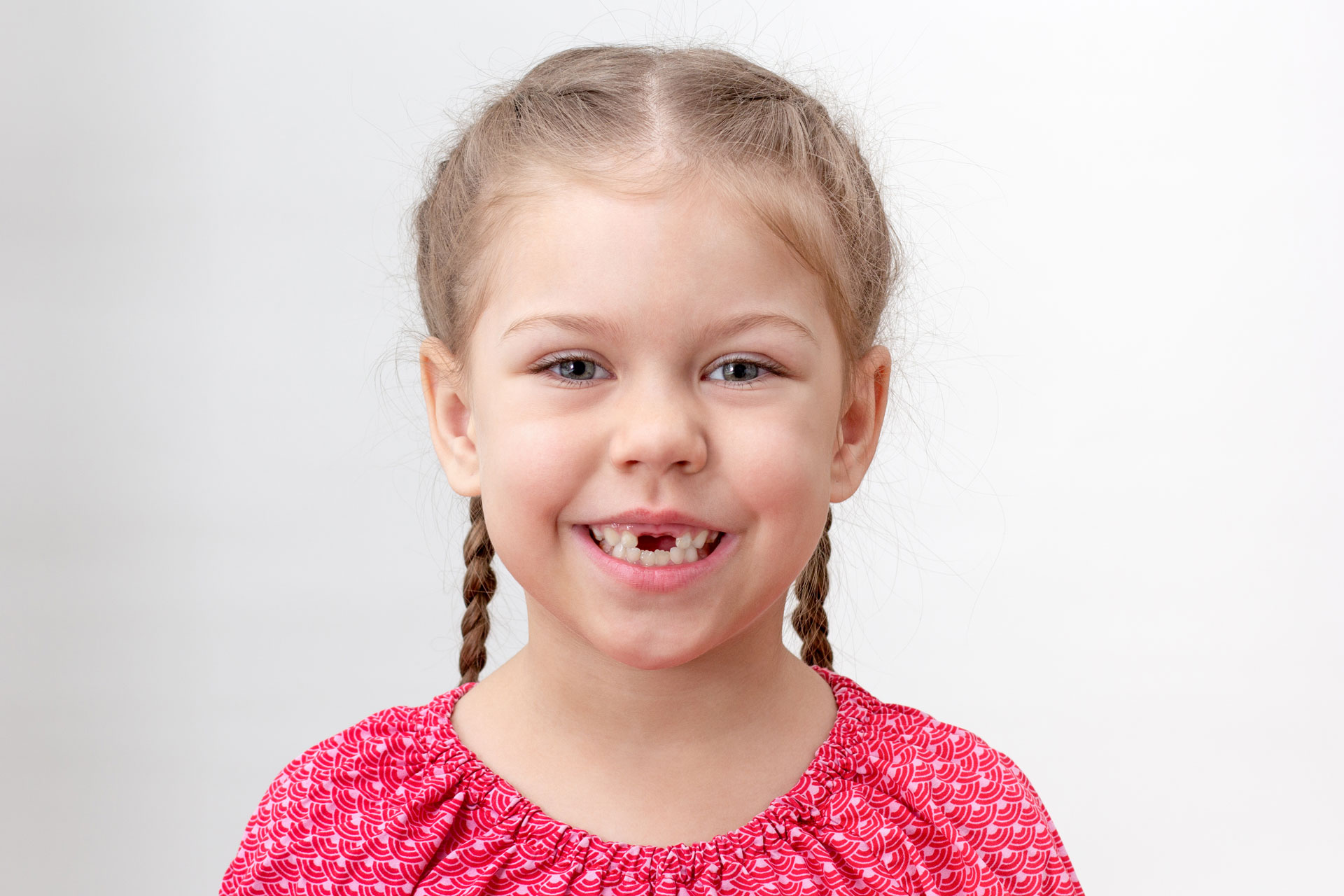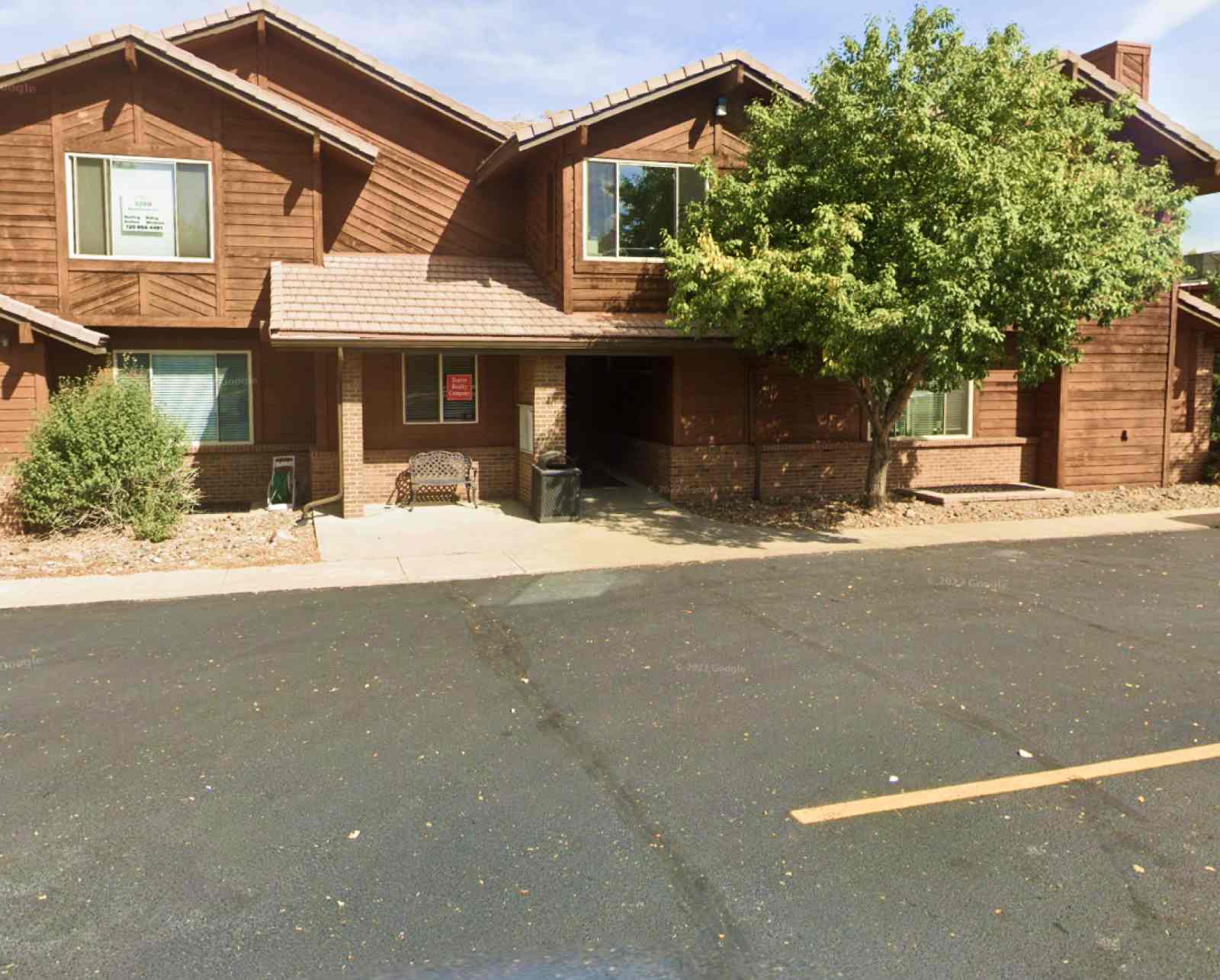Prevention
Caring & Compassionate Kids Dentistry
What Is Pediatric Dentistry?
The Difference a Pediatric Dentist Makes
The pediatric dentist has an extra two to three years of specialized training after dental school and is dedicated to the oral health of children from infancy through the teenage years. The very young, pre-teens, and teenagers all need different approaches in dealing with their behavior, guiding their dental growth and development, and helping them avoid future dental problems. The pediatric dentist is best qualified to meet these needs.
Your Child’s First Dental Visit
The American Academy of Pediatrics (AAP), the American Dental Association (ADA), and the American Academy of Pediatric Dentistry (AAPD) all recommend establishing a “dental home” for your child by one year of age. Children who have a dental home are more likely to receive appropriate preventive and routine oral health care.
Eruption of Your Child’s Teeth
Children’s teeth begin forming before birth. As early as 4 months, the first primary (or baby) teeth to erupt through the gums are the lower central incisors, followed closely by the upper central incisors. Although all 20 primary teeth usually appear by age 3, the pace and order of their eruption vary.
Permanent teeth begin appearing around age 6, starting with the first molars and lower central incisors. At the age of 8, you can generally expect the bottom 4 primary teeth (lower central and lateral incisors) and the top 4 primary teeth (upper central and lateral incisors) to be gone and permanent teeth to have taken their place. There is about a one to two-year break from ages 8-10 and then the rest of the permanent teeth will start to come in.
This process continues until approximately age 21. Adults have 28 permanent teeth or up to 32 including the third molars (or wisdom teeth).
Why Are Primary Teeth Important?
It is very important to maintain the health of primary teeth. This can be done through proper dental care at home as well as consistent dental check-ups. Neglected cavities can and frequently do lead to problems that affect the development of permanent teeth. Maintaining a healthy diet and avoiding sugary foods whenever you’re not able to brush your child’s teeth afterward are good habits for protecting your child’s primary and permanent teeth.
Caring For Your Child’s Teeth
Brushing Tips
- Starting at birth, clean your child’s gums with a soft cloth and water.
- As soon as your child’s teeth erupt, brush them with a soft-bristled toothbrush.
- If they are under the age of 2, use a small “smear” of toothpaste.
- If they’re 2-5 years old, use a “pea-size” amount of toothpaste.
- Be sure and use an ADA-accepted fluoride toothpaste and make sure your child does not swallow it.
- When brushing, the parent should brush the child’s teeth until they are old enough to do a good job on their own.
Flossing Tips
- Flossing removes plaque between teeth and under the gumline where a toothbrush can’t reach.
- Flossing should begin when any two teeth touch.
- Be sure and floss your child’s teeth daily until he or she can do it alone.
More Questions?
At Trinity Kids Dental, we’re here for you. When you schedule a visit for your child, we’ll answer any questions that you may have and help you understand what to expect next in their dental development. We want to assist you in helping your child maintain a healthy smile and build a good foundation for their dental future. If you are looking for a pediatric dentist in the Brighton, CO area, call our team today to schedule your child’s first visit!
Preventative Hygiene
Preventive hygiene is essential to ensuring the health of your child’s teeth. Children are known to struggle to remember and keep up with their oral hygiene, which is why preventive measures are even more vital at a young age. To set your child up for success, help them to develop a routine as well as schedule regular dental checkups and cleanings. Below are some of the tips that we have found to be the most effective for brushing and flossing.
Proper Tips For Brushing & Flossing
#1: The Way You Brush Matters
When first learning to brush their teeth on their own, children tend to brush in long strokes along their teeth. However, the key to getting their teeth as clean as possible is to hold their brush at an angle and brush in circular motions. This method helps the brush cover the entirety of the teeth’s surface as well as the gums. They should also be sure to brush the tops and backs (the inner part) of their teeth where bacteria may linger.
#2: Floss at Least Once a Day
Encouraging your child to floss at least once a day can help prevent cavities and gingivitis. The best way to floss is by helping them get a long piece of floss, approximately 18 inches, and wrap it around their finger. As they go along, they can wrap the portion that has been used along their opposite finger.
Taking a one-inch portion at a time, they can use their thumbs and index fingers to guide the floss between their teeth, moving it back and forth to loosen and remove any debris.
#3: Finish With Mouthwash
Mouthwash is not a necessity, but it certainly helps. After brushing and flossing between teeth, mouthwash covers any leftover area that has not been reached. Utilizing a fluoride mouthwash can help your child prevent plaque buildup, rid the mouth of cavity-causing bacteria, and freshen breath.
Dental Exams & Cleanings
Dental cleanings and exams are vital to your child’s oral health and hygiene. However, we understand it can be difficult to get your child to the dentist as it may be scary or uncomfortable for them. Dr. Hannah and our team at Trinity Kids Dental prioritize providing a comfortable, warm, and inviting atmosphere for children. Because children are our primary patients, we have developed methods and techniques that make your child feel safe and content when they visit the dentist.
If your child is due for a routine dental checkup in Brighton, MO, request an appointment with Trinity Kids Dental today.
The Importance of Routine Cleanings
Even if your child is consistently brushing and flossing their teeth at home, routine cleanings at the dentist are still important. Our dentist, Dr. Hannah, utilizes special tools during routine cleanings to remove stubborn plaque and ensure your gums are healthy. This is also the time when Dr. Hannah can check on how your child’s teeth are growing and take X-rays.
Routine cleanings can prevent cavities, encourage gum health, reduce staining, and assist children in having a long-lasting smile. It is best to take your child to visit the dentist at least once every six months.
What to Expect at an Exam
An exam at Trinity Kids Dental involves a physical exam and thorough cleaning. During the physical exam, Dr. Hannah will take x-rays, which will allow her to look at how the teeth are growing and get the best picture of your child’s teeth. She will also examine the teeth up close for signs of decay, gingivitis, or other issues.
Emergency Dentistry
Offering emergency pediatric dentistry in our Brighton, CO office means you can rest assured that your child will be safe when accidents happen, and you will know the best steps to take for their oral health. To help you navigate through dental emergencies, we’ve included some tips below to help you know what to do during common accidents that we see.
As always, we welcome you to call our office at any time, but the information below may give you the guidance you need immediately during a dental accident. If you have additional questions, contact our team right away!
Common Dental Emergencies
Toothache
Clean the area of the affected tooth. Rinse the mouth thoroughly with warm water or use dental floss to dislodge any food that may be impacted. If the pain still exists, contact your child’s dentist. Do not place aspirin or heat on the gum or the aching tooth. If the face is swollen, apply a cold compress and contact your dentist immediately.
Cut or Bitten Tongue, Lip, or Cheek
Apply ice to injured areas to help control swelling. If there is bleeding, apply firm but gentle pressure with a gauze or cloth. If bleeding cannot be controlled by simple pressure, call a doctor or visit the hospital emergency room.
Knocked-Out Permanent Teeth
If possible, find the tooth. Handle it by the crown, not by the root. You may rinse the tooth with water only. DO NOT clean with soap, scrub, or handle the tooth unnecessarily. Inspect the tooth for fractures. If it is sound, try to reinsert it in the socket. Have the patient hold the tooth in place by biting on a gauze or clean cloth. If you cannot reinsert the tooth, transport the tooth in a cup containing the patient’s saliva or milk, NOT water. If the patient is old enough, the tooth may also be carried in the patient’s mouth (beside the cheek). The patient must see a dentist immediately! Time is a critical factor in saving the tooth.
Knocked-Out Baby Tooth
Contact your pediatric dentist. Unlike with a permanent tooth, the baby tooth should not be replanted due to possible damage to the developing permanent tooth. In most cases, no treatment is necessary.
Chipped/Fractured Permanent Tooth
Time is a critical factor, contact your pediatric dentist immediately to reduce the chance of infection or the need for extensive dental treatment in the future. Rinse the mouth with water and apply a cold compress to reduce swelling. If you can find the broken tooth piece, bring it with you to the dentist.
Chipped/Fractured Baby Tooth
Contact your pediatric dentist.
Severe Blow To The Head
Call 911 immediately or take your child to the nearest hospital emergency room.
Possible Broken or Fractured Jaw
Keep the jaw from moving and take your child to the nearest hospital emergency room.
We’re Here For You!
At Trinity Kids Dental, it’s our goal to ensure every child has a healthy, happy smile and dental experience. There is both pride and passion in everything that we do as a team – not only because we love dentistry, but also because we care for your kids! For this reason, we offer emergency services in our office. When faced with a scary, unexpected dental emergency, we want to help you know what to do as a parent, and we want your child or teen to be cared for in a friendly environment, surrounded by familiar faces.
Pediatric Dentistry FAQ
It is generally recommended that your child first visit a dentist when their first tooth erupts, which is typically between six and eight months of age. However, if your child has not grown a tooth still, they should visit the dentist by the age of one year old. There is a common misconception that children do not have to go to the dentist until they have developed a full mouth of teeth, but this can be detrimental to their oral health.
It is generally recommended that your child first visit a dentist when their first tooth erupts, which is typically between six and eight months of age. However, if your child has not grown a tooth still, they should visit the dentist by the age of one year old. There is a common misconception that children do not have to go to the dentist until they have developed a full mouth of teeth, but this can be detrimental to their oral health.
Children should visit their dentist for a routine cleaning and checkup at least once every six months. Six months is ideal because it allows enough time between appointments for dentists to check for any changes while still being often enough to ensure the health and cleanliness of your mouth and teeth.
The best way to ensure your child keeps up with their oral health and avoids cavities is by being proactive with their oral health and diet. When your child is old enough to start brushing on their own, ensure they know the proper way to brush and floss their teeth and explain the importance of doing so. It may seem tedious, but reminding them morning and night to brush their teeth is the best way to get them into the habit of keeping up with it.
It’s also important you do your part in ensuring their oral health by keeping up with dental appointments and taking them to routine cleanings. Further, make sure you are watching their diet. If they are consuming too much sugar in foods and drinks, this can be harmful to their teeth and lead to decay. Make sure you are feeding them a balanced diet and keeping healthy snacks in the house.
It is recommended that a child not start using toothpaste until the age of two. After that, they may use toothpaste; however, we recommend a special toothpaste for children and to start by using a small amount. The reason for this is that fluoride can be dangerous if ingested, and you want to use as little as possible to prevent this.
Pediatric dentists are different from other dentists because they are uniquely trained to work with children and infants as they require special care. A pediatric dentist undergoes two to three more years of training compared to other dentists because they must learn the proper techniques and unique needs that come with caring for children. This training also covers child behavior, which allows them to better understand the methods that will make children more comfortable when visiting the dentist.
If your child is experiencing a dental emergency, contact our office right away. It is important to take your child to a pediatric dentist in the event of an emergency because they are specialized in care for children and infants and can provide your child with exceptional emergency care. Contact Trinity Kids Dental at (303) 659-7700 right away if you are in need of emergency dental care in Brighton, CO.





